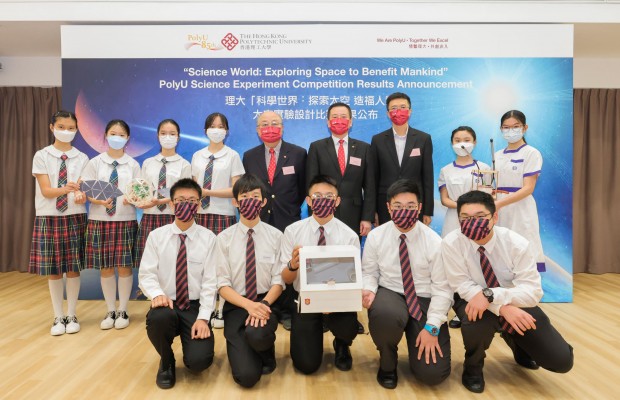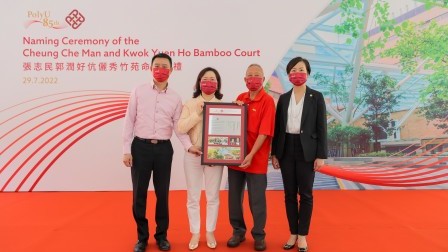Space experiment competition cultivates local youth’s interest in space science
How lizards adapt to a microgravity environment and cosmic radiation in space may shed light on the mechanisms by which humans repair their body tissue, thus help preparing humanity for future long-term space missions, according to junior scientists from Diocesan Boys’ School who have just won PolyU’s space experiment competition.
The competition, part of PolyU’s science education programme for secondary school students, attracted 26 experiment proposals from 22 secondary schools. Teams from Diocesan Girls’ School, which proposed to grow Aloe vera in space, and St. Paul’s Convent School, which designed an ecosphere to improve air quality on space station, were respectively awarded first runners-up and second runners-up prizes.
The judging panel evaluated the experiment proposals based on feasibility, creativity, scientific knowledge, scientific value, as well as presentation skills. Experts from PolyU’s Research Centre for Deep Space Explorations (RCDSE) will offer guidance and modifications to the winning experiment proposal, so that the experiment could have a chance to be performed at the China Space Station.
In addition to the competition, the “Science World: Exploring Space to Benefit Mankind” education programme delivered 13 online lectures on interesting topics related to engineering, physics and astronomy, making reference to basic scientific knowledge related to space. Students also had the opportunity to visit PolyU’s specialised laboratories, including the RCDSE, Planetary Remote Sensing Laboratory and Aerodynamics Laboratory.






